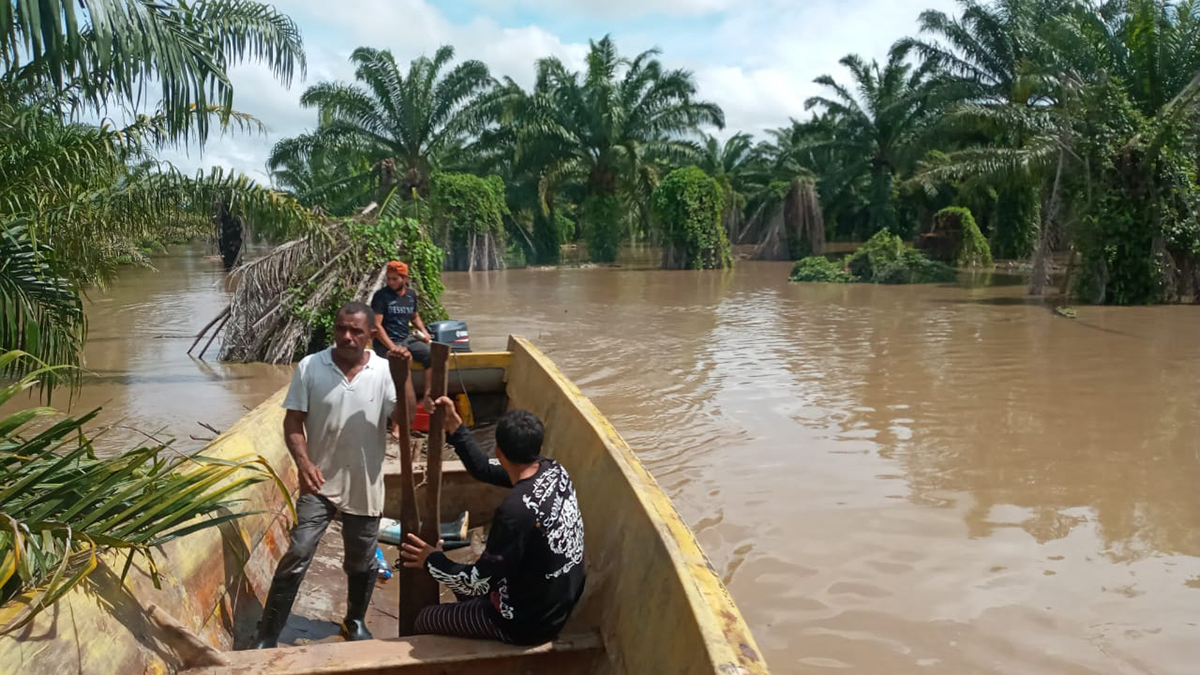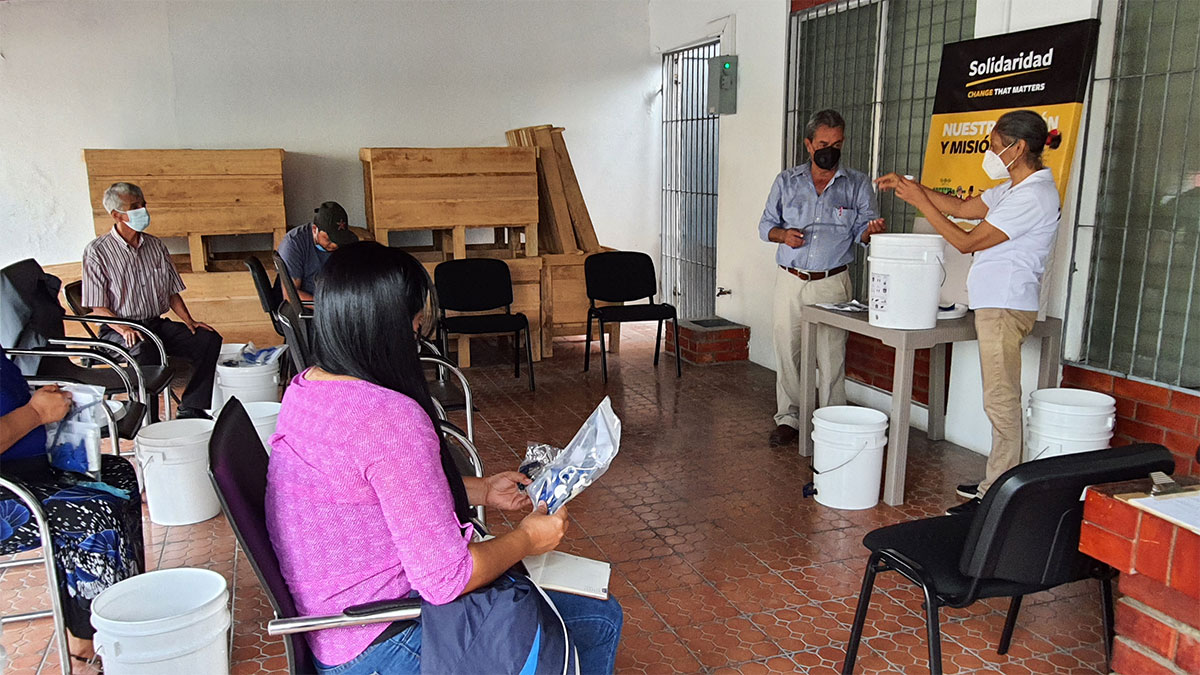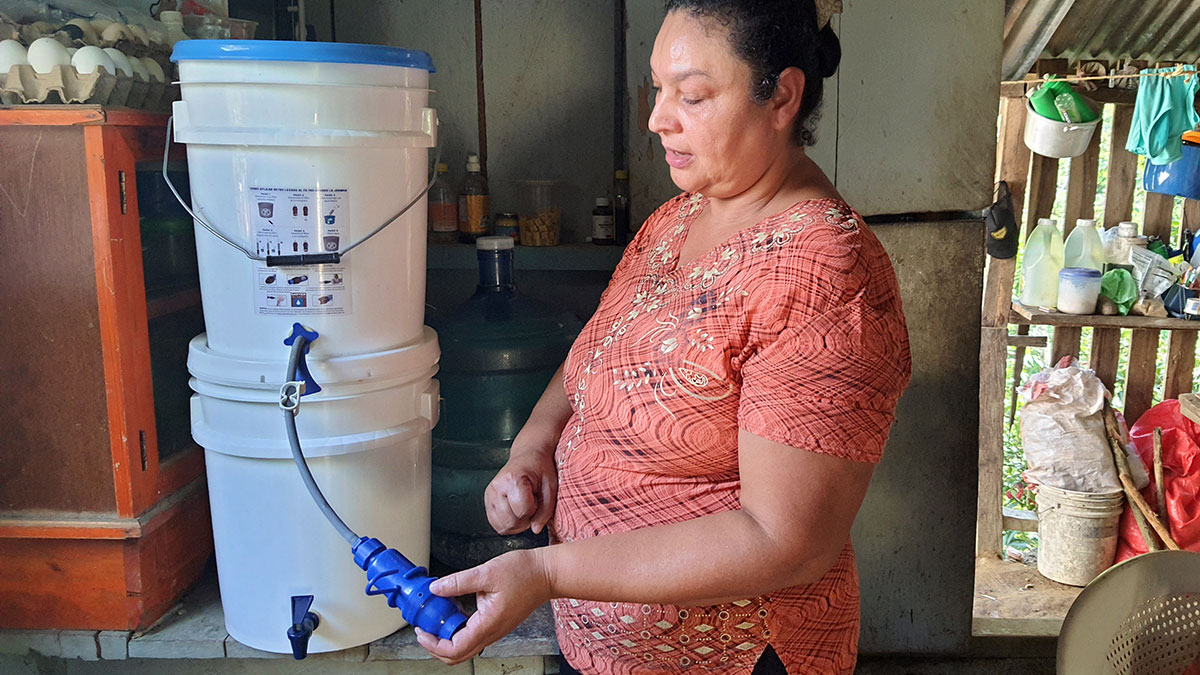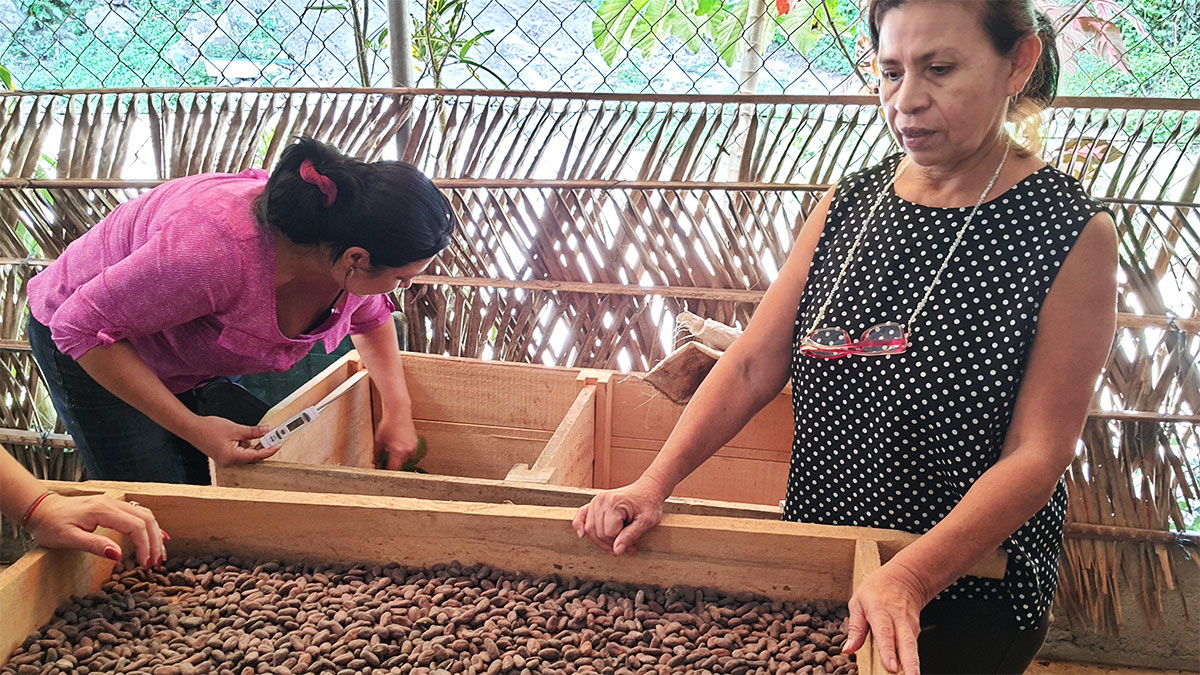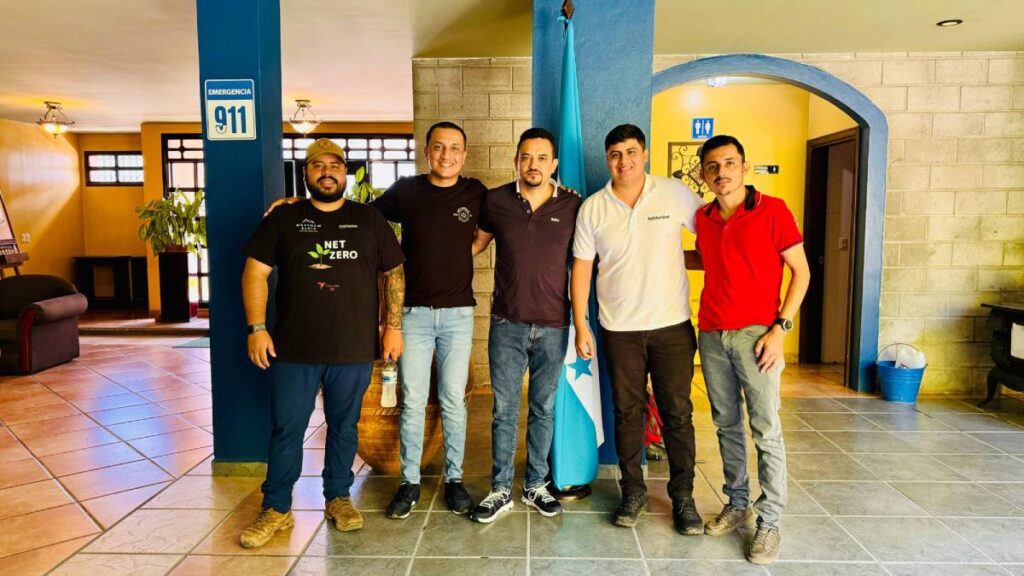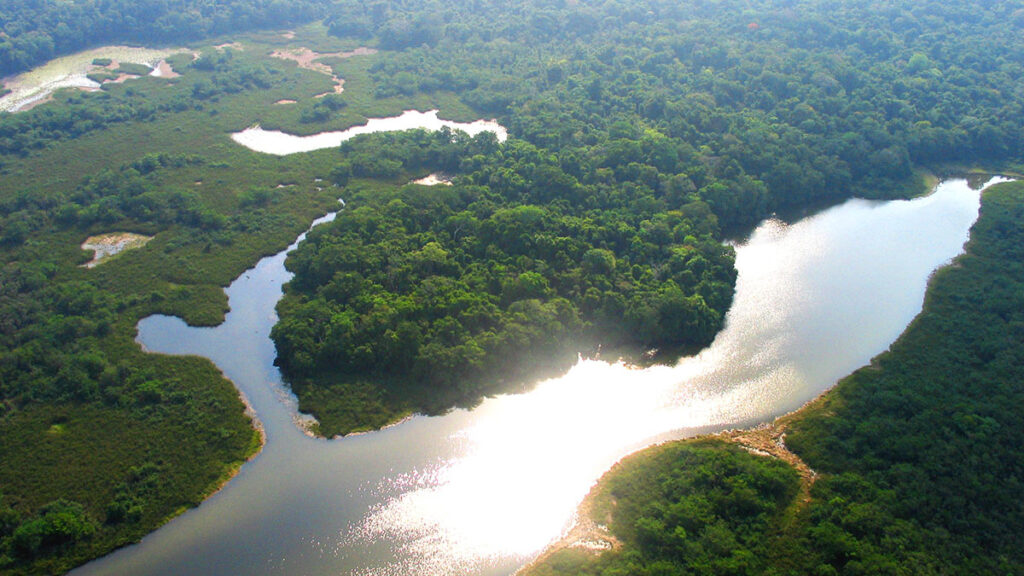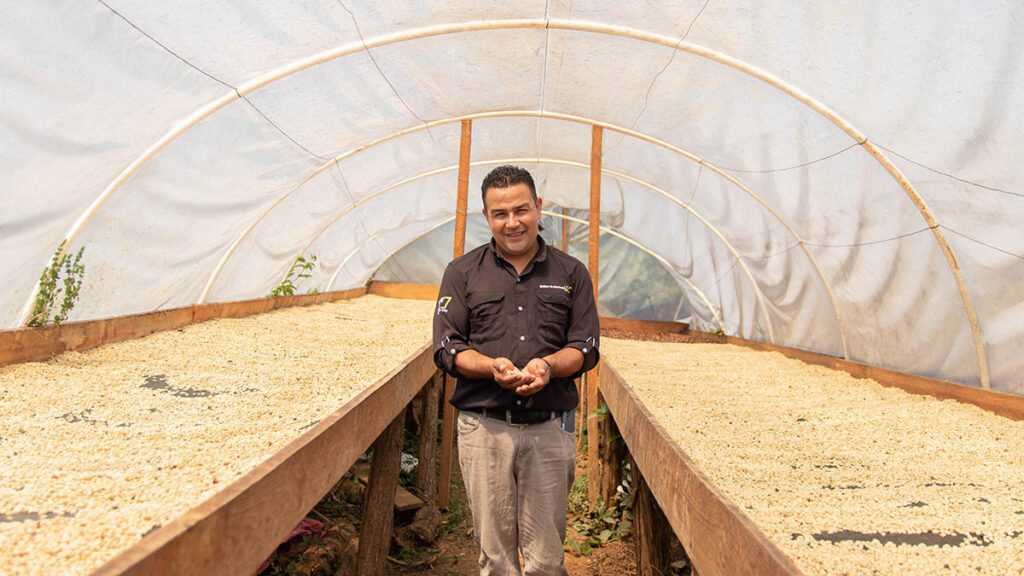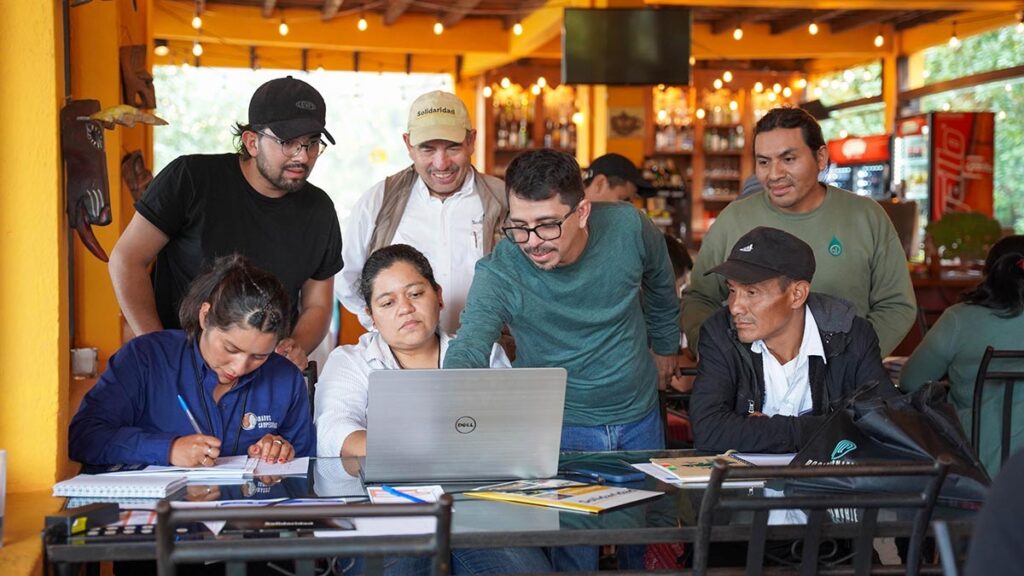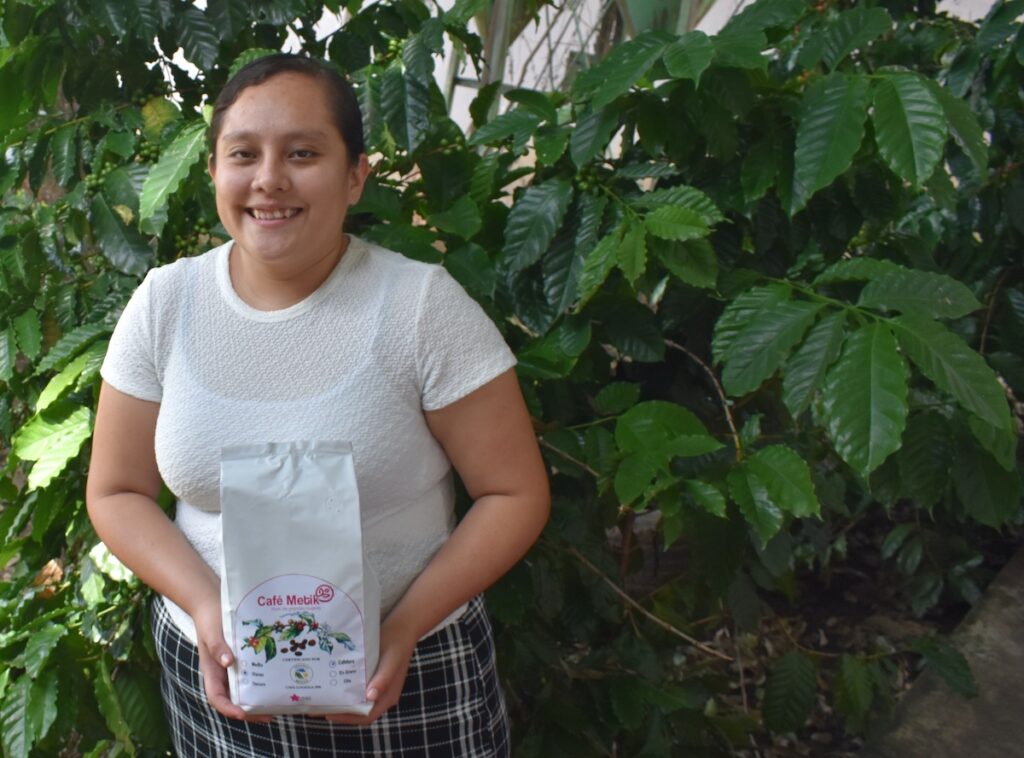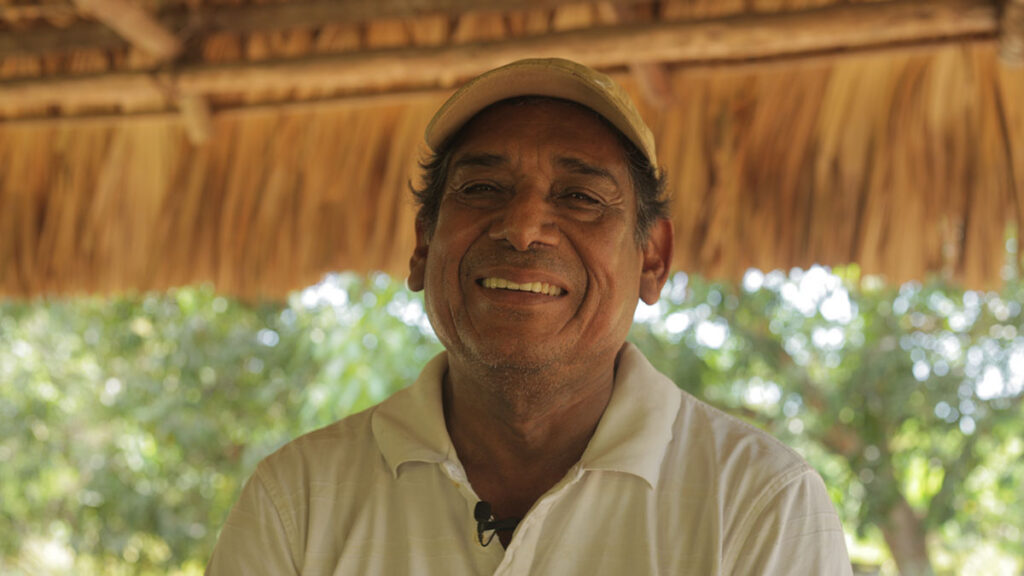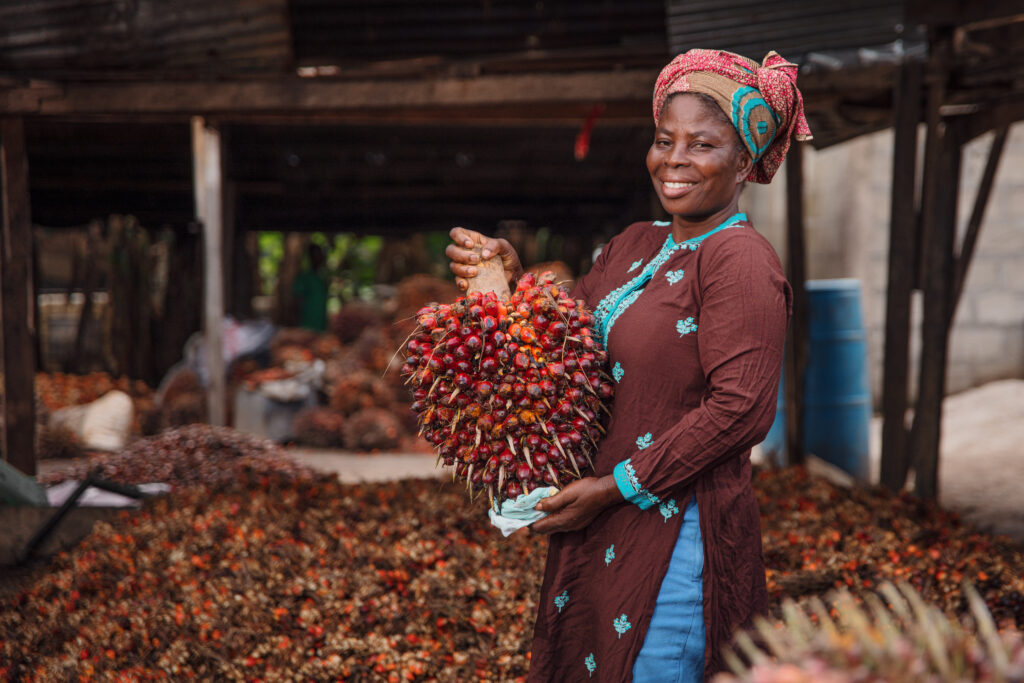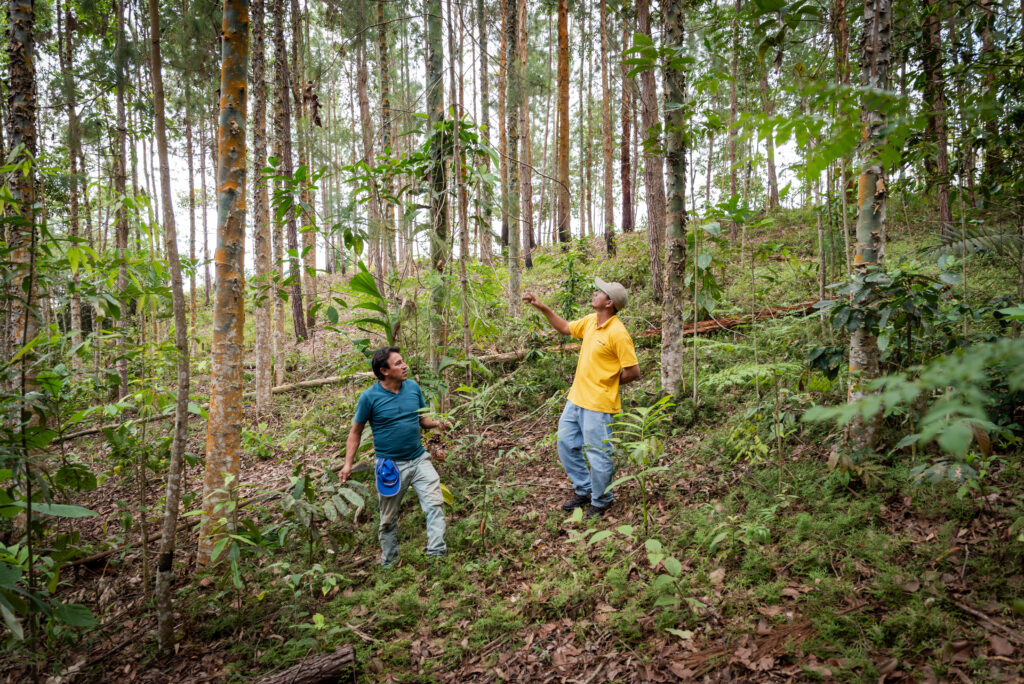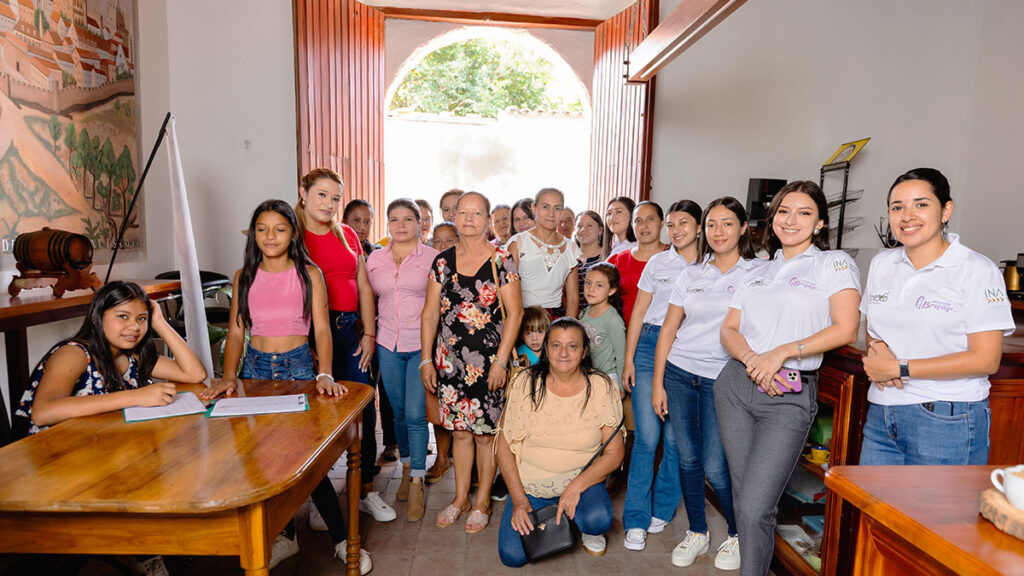Losses in Honduras were equivalent to 9.2% of the GDP
Hurricanes Eta and Iota generated a loss of $2.1 billion in Honduras, equivalent to more than 9% of the country’s gross domestic product (GDP). To bring these numbers into context, 9.2% of GDP in the Netherlands would be equivalent to $83.9 billion and in Germany to $350 billion.
Honduran oil palm smallholders lost the majority of their 2020 production
A portion of the losses in Honduras occurred in more than 59,000 hectares of oil palm plantations, where more than 2000 farmer families working with Solidaridad-implemented programmes reported damages. Farmers lost fruit bunches that were ready to be transported, as well as livestock, forest area and other food crops to the flood waters. Lack of access to main roads prevented the sale of whatever production survived the floods.
“The storms affected 70% of the independent producers’ production, and 30% of their plantations had a total loss”, said Aron Paredes, a technician overseeing independent production for Solidaridad partner, Industrias Aceiteras del Caribe de Honduras (HonduCaribe), which is a social enterprise that brings together many smallholder producers.
Families were not able to harvest products from their farms for several months. Their homes experienced flood damage, which interfered with their access to safe shelter and clean drinking water. The situation became emotionally taxing, as smallholders lacked the income to purchase food and other necessities for their families.
According to the National Hurricane Center, typically six out of an average of 12 tropical storms become hurricanes over the Atlantic Ocean, Caribbean Sea, or Gulf of Mexico during the yearly hurricane season. In 2020, 29 storms had formed over the Atlantic by the time Eta became a tropical storm, which broke the previous record from 2005. A week later, Iota was threatening the area again.
“I never before experienced two back-to-back floods like with Eta and Iota. My family had to evacuate to Choloma to flee from the disaster”, said Medardo Caballero, a smallholder independent producer working with HonduCaribe. “It took six months to be able to begin producing palm again. My family also lost our corn fields, and there was damage to our home. I have never lived through something like this before”.
Smallholder Mariano Ayala and his family lost the entire harvest in 2020, as well as some livestock and corn he had planted on a different plot to diversify their income. “The second storm, which came 8 days later, took the remaining provisions we had salvaged from the first one”, said Mariano. “We lost beds, our refrigerator, everything. On the farm, we lost all of the fruit, because it rotted from the floods. We were once producing 2 tons per hectare, and we lost everything”. The family spent 10 months without any farm income and, like Medardo’s family, had to evacuate due to the extensive damage to their land and home.
Back-to-back low-yield harvest years for Honduran cocoa smallholders
Cocoa-growing farmer families, who work with Solidaridad programmes, also sustained damage on 168 hectares of land.
“We were severely affected by the storms. We lost road access to our farms, and we lost the warehouse, where we stored all our equipment and supplies. Also, some families in our organization lost absolutely everything”, said Azucena Sabillón from El Paraíso Association in Yoro, Honduras.
Farmers lost cocoa flowers and pods and access to their farms due to the floods. Because road access was impaired, they were unable to sell harvested cocoa that was ready to go to market, just prior to the storms.
“We have had very low production, practically nothing, for the past two years. In 2019, we had a drought and in 2020, the storms came through. We hardly harvested 1,000 pounds this year, and we should have harvested closer to 7,000 given the size of our farm. The wind caused the loss of the fruit. And on the other hand, the rains from the storms forced us to enter into a pruning plan to avoid diseases caused by excess humidity”, said Sergio Segovia from Xocolatl, a member company of the Cocoa and Chocolate Women Network of Honduras (REDMUCH).
Unfortunately, natural disasters like Eta and Iota show that in addition to struggling to achieve a fair price for the crops they produce, farmers also increasingly face the effects of climate change. These effects are ultimately transferred to us all, the end consumers, when we see production shortages or delivery interruptions.
During COP26, the international climate-change conference, in November 2021, the Honduran president urged leaders to prevent further losses in the region by taking climate change action. Solidaridad called on major economies to deliver on their promise to mobilise at least $100 billion in annual climate finance to support developing countries. Investment in climate-smart agriculture is important, because smallholder producers —like those affected by the storms in Honduras— can learn to use sustainable practices to increase productivity on the farm and strengthen their own resilience, adaptation and mitigation response to climate change.
Solidaridad and partners supported more than 400 families affected by the storms
Climate-smart agriculture should be a part of a long-term response to storms caused by climate change. In 2020, Solidaridad committed to working to support recovery efforts following the storms. Our teams in Europe quickly put together a campaign and used crowdfunding to raise funds that would support smallholders in Guatemala and Honduras.
Recovery efforts in the Honduran oil palm sector
In the palm sector, Solidaridad partnered with 9 palm oil processing companies, including HonduCaribe, to join resources, personnel and facilities for relief efforts. Partners delivered humanitarian aid to 256 smallholder families, including donations of household items, basic food supplies and biosafety kits, to ensure each family member could protect themselves from the already dire situation caused by the Covid pandemic. Some families also received construction materials to ensure a proper foundation for their homes.
“Solidaridad and HonduCaribe came to see the damages on my plot, and they supported my family with 10 new palm plants and several items for my home, to help me recover”, said Mariano. “We are still rebuilding from the damages, but I am very grateful for the help I have received so far. In the future, I hope to be able to recover the 200 palm plants I lost to the storms”.
Yadira Maldonado also lost her entire production in 2020, as well as everything in her home and several farm animals. “I’m grateful for the support I received. My home and farm were completely destroyed. Solidaridad and HonduCaribe supported my family with a new roof and palm plants. In the future, I’d like to improve production rates in my farm because that is the source of my family’s livelihood”, said Yadira.
“Our challenge is to begin raising the yields (tons per hectare) for each smallholder’s production. We are at one year and a half since these losses, and production has not yet reached the rate we had achieved before the storms. However, we are fully expecting to do so by using best practices,” said Edy Quintero, in charge of technical assistance at HonduCaribe.
Tools for greater resilience in the Honduran cocoa sector
In the cocoa sector, Solidaridad partnered with the Cocoa and Chocolate Women Network of Honduras (REDMUCH) to support families that were most in need from three cooperatives associated with REDMUCH. Together, Solidaridad and REDMUCH delivered humanitarian aid to 145 smallholder families, including donations of water filters to 85 of the families (reaching more than 500 individuals). Sergio Segovia, who along with being a REDMUCH member, serves as president of the Asociación Productores de Cacao Cuenca Cangrejal (Asoproccan), played an important role in demonstrating producer families how to use the water filters.
Pictured above: Sergio Segovia from Xocolatl and Suyapa Saldivar from Solidaridad demonstrate how the water filters work for a handful of the producer families from Asociación Productores de Cacao Cuenca Cangrejal (Asoproccan). Fernanda García from Asoproccan using one of the fermenting boxes provided by the funds raised by the Eta/Iota relief project.
“The filters were very important to me. I have wanted one of those filters for my workers for many years, and I had not been able to get it. Now, the people who normally drink water from the streams and the river on the farms can filter the water. It is a simple system, with two buckets, one on top of the other. The top one is filled with water and the water comes out through a hose, goes through the filter and falls into the second bucket completely clean, completely drinkable”, said Sergio.
All 145 families received tools to use during production and harvest, as well as to transform the cacao into chocolate products.
“We are extremely grateful to have received this support through Solidaridad, since we experienced great loss during the storms. With the equipment, we can dry, ferment and transform our cacao to make marketable products. Today, we see that the product is of a better quality, since we are carrying out a correct process and not the one that we had previously improvised”, said Fernanda García, Asoproccan partner and member.
Using the appropriate tools to dry and ferment cacao increases the quality of cocoa, but it also helps the product last longer after harvest.
“If the smallholders would have had access to fermenting boxes and other tools prior to the storms, we’d be telling a different story. Losses would have been reduced significantly”, said Suyapa Saldivar, who led the relief efforts on behalf of Solidaridad in 2020 and 2021.
“If we would have had the right equipment, back when the hurricanes hit, our stored production would not have gone to waste. At the time, we were not yet transforming our cacao into marketable products. Today, we will be able to process all our raw material and transform it. We foresee that we’ll be able to begin marketing chocolate powder and pinole in 2022”, said Azucena Sabillón from El Paraíso.
Because the transformed product has a longer shelf life than the raw cacao, and the lack of access to roads would not have been an issue.
At Solidaridad, we are committed to sustainable production, strengthened livelihoods and fair prices for farmers. We gather stakeholders and efforts to get to where our support is needed. In the case of the smallholder producers who were greatly affected by hurricanes Eta and Iota, this meant reaching out to our network of partners, like you, to aid in recovery efforts. We thank you for lending a helping hand.

